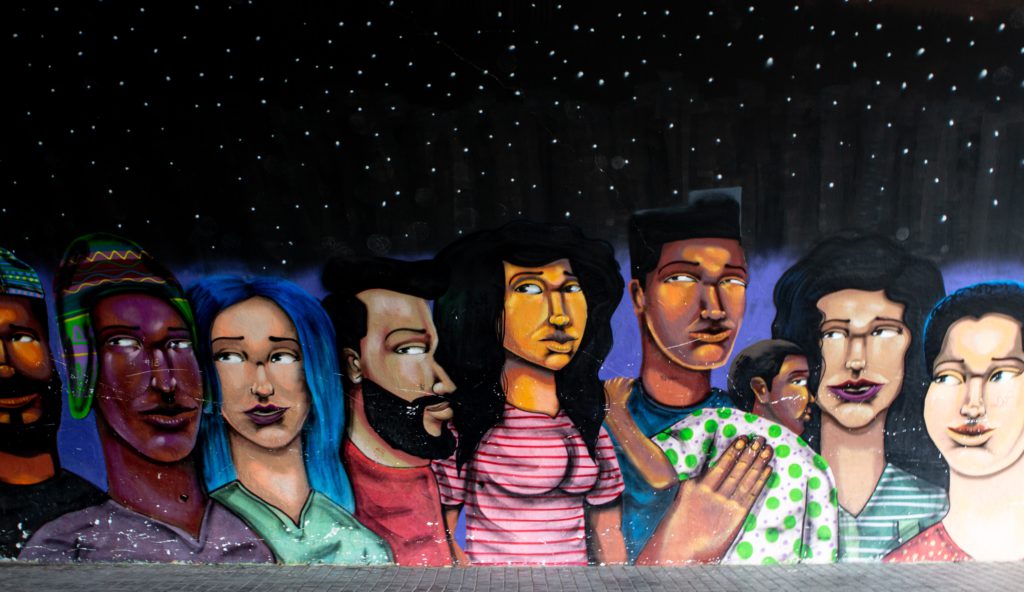Nov 17, 2022
How Far Has Your Company Traveled on the Road to Diversity, Equity, and Inclusion?
Did you know organizations with more diversity and inclusion are more profitable, innovative, and capture more market share? The benefits of DEI (Diversity, Equity & Inclusion) are not new. They have been shown in many studies, including those conducted by Deloitte, Harvard Business Review, Glassdoor, Mckinsey, and Fast Company.
Despite the many benefits of DEI for employees and companies, many organizations have not fully embraced the practice.
If your company is looking to become more diverse and inclusive, it’s important to know where you are in the process and how you can get to the next stage. According to the Nov-Dec 2022 Harvard Business Review Magazine article “The Five Stages of DEI Maturity” by Ella Washington, the process of DEI maturation follows a predictable pattern.
In her article, Washington outlines each stage and explains what questions leaders can ask to advance to the next stage.
1) Aware
Are you an aware company? Aware companies have just started the DEI process, usually brought about by some external force, such as government regulations or investors. Aware companies have never prioritized DEI before.
If you’re just getting started in the DEI process, Washington suggests leaders ask: Why does DEI matter to us personally? And, where do we want to go? Answering these questions will help your organization set goals to reach the next stage.
If you’re looking for someone to help you understand DEI and unconscious bias, consider Robin Hauser. Robin Hauser is an Unconscious Bias keynote speaker and an award-winning director of documentary films at Finish Line Features. She has spoken about unconscious bias, the importance of diversity and inclusion, and women’s rights at organizations such as NASA, Google, Amazon, SXSW, the White House, and more.
2) Compliant
About a third of organizations fall into the compliant stage, according to Washington. These companies are implementing DEI to meet industry and government regulations—not because they believe in it.
If you find your organization is in the compliant stage and would like to embrace DEI more, your leaders should ask: Where can we set goals that are bigger than our compliance targets? And, how can DEI help us to meet our other goals?
If you’re looking for a DEI expert to help take you to the next level, consider Risha Grant.
Risha Grant is an in-demand DEI keynote speaker, consultant, and author of the book That’s B.S. How Bias Synapse Disrupts Inclusive Cultures. Risha works with small and large companies to help uncover unconscious bias and build more diverse and inclusive company cultures. Risha can show your business how to attract and keep diverse talent, communicate with diverse audiences, and capture new markets.
3) Tactical
Organizations in the tactical stage have gone beyond just meeting regulations. According to Washington, these companies have begun their own DEI initiatives, which were usually started by employee resource groups (ERGs) and teams. However, the organization doesn’t have a strategic approach to DEI yet.
To better align your organization with your employee efforts, Washington suggests leaders ask the following questions: What’s our strategy? Where do we need to standardize? How can we connect DEI work up and down the organization? What is our full sphere of influence?
If you’re looking for a communication expert to get the dialogue going, consider Paula Caligiuri.
Paula Caliguiru is a team-building speaker, Distinguished Professor of International Business and Strategy, and author of Build Your Cultural Agility. In her talks, audiences will learn five key strategies for building trust when team members are of different cultures, generations, and functional areas.
4) Integrated
Integrated organizations have aligned internal strategy and external regulations, combining the company’s goals and employee efforts. According to Washington, an integrated organization has defined “its DEI strategy, developed a culture of inclusion, and taken a close look at the impacts of discrimination and inequity” and sought to address those challenges.
However, there’s still work to do to become a sustainable DEI organization. Washington suggests leaders ask: What systems and structures do we need to create? Why not?
If you’re looking for someone to advance your DEI efforts, consider DEI expert Wema Hoover. Wema Hoover is a culture and DEI expert who has dedicated her career to serving as a catalyst for change and as a transformational leader. As a trusted C-suite and board-level advisor, Wema has leveraged her background leading global DEI efforts for companies like Google, Pfizer, Sanofi, and Bristol-Myers Squibb to help inform and guide corporate leadership through evolving corporate culture, creating inclusive work environments, and integrating DEI and sustainability to build high-performance organizations and drive business results.
5) Sustainable
If you’re a sustainable DEI organization, then you have DEI deeply embedded in your corporate DNA and your leaders have a mindset of continuous improvement, according to Washington. Your leaders and employees only need to continue what you are doing to sustain the DEI culture. It isn’t easy but the benefits are tangible in job satisfaction and market performance.
If you would like to improve your company DEI, reach out to BigSpeak today to hire a DEI keynote speaker and consultant.
For More on DEI Read:
Top Diversity Keynote Speakers to Help Your Business Grow
Harvard Business Review Says Build a Diverse Leadership Team to Transform Your Business
Black Female and DE&I Speaker Wema Hoover says it’s time to Debunk the ‘Black Girl Magic” Myth
10 of 2022’s Top DE&I Speakers
DE&I Expert Wema Hoover Encourages Organizations to tap into the Power of Black Female Leadership
